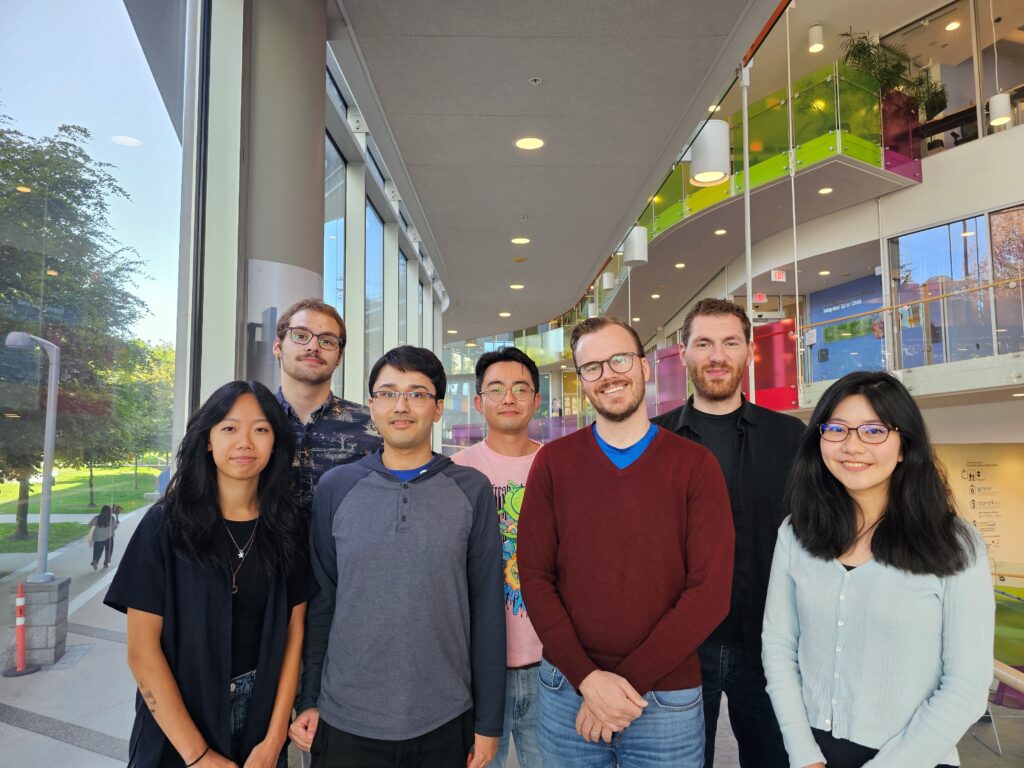Growing up, Dr. Brett Hilton was interested in pursuing a career in medicine. However, after he started doing work in a research lab and interacting more with scientists, his focus shifted to becoming a scientist himself. His first research experience was conducting experiments at the Bamfield Marine Sciences Centre focusing on environmental effects on wasting disease in a starfish species. From there, Dr. Hilton started to pursue experimental neuroscience work as an undergraduate in different labs at Vancouver General Hospital before entering graduate school.
“What attracted me to neuroscience, and to my research field of regenerative neurobiology in particular, is that the big, fundamental questions remain unanswered,” Dr. Hilton recalls. “I felt early on in my career that because of this, I could do important work in this area that would really have an impact, both in terms of generating new knowledge that would change the field as well as ultimately in the clinic itself.”
Dr. Hilton completed his PhD at UBC under the supervision of Dr. Wolfram Tetzlaff.
“There’s no question Dr. Tetzlaff has had the biggest impact of anybody on my training as a scientist and approach as a researcher,” says Dr. Hilton. “His rigour, integrity, and passion are a model for me. He also has a fantastic approach to mentoring young scientists, for example by involving them in grant writing or otherwise encouraging them to articulate their own ideas into their projects, which I am now trying to apply myself as I mentor students in my own lab.”
In his role as Assistant Professor in UBC’s Department of Cellular & Physiological Sciences, Dr. Hilton’s research focuses on understanding the fundamental processes that prevent regeneration following spinal cord injury. One of his current projects which was recently funded by Brain Canada, will focus on understanding how neurons lose the capacity to regenerate during development.
“We discovered a ‘molecular switch’ that is turned off as neurons mature; by using a genetic approach to turn it back on, we find that adult neurons re-acquire the ability to grow axons in cell culture,” Dr. Hilton explains. “We’re now testing whether this approach can enable axon regeneration following spinal cord injury.”

Dr. Brett Hilton with members of his lab.
Dr. Hilton’s favourite part about UBC is the community, which makes collaborating easy.
“The work I am doing is inherently multidisciplinary, but with so many great biologists at UBC who are leaders in different fields, I think there are always at least a few domain experts in the approaches that we are using and the conceptual basis for what we are studying that I can always get good feedback from colleagues on our projects,” says Dr. Hilton. “One example of this is the Brain Circuits Cluster at the DMCBH, which provides me and my trainees expertise in data science that we would not otherwise have. Certainly for me, having these kinds of interactions is an extremely positive influence on our research program.”
Dr. Hilton’s research lab is located at ICORD, a world-renowned spinal cord injury research centre. He believes ICORD is one of the few places where it truly is possible to translate discoveries into the clinic and to have the kind of impact he wants to have on the lives of people with spinal cord injuries.
Outside of the lab, he enjoys spending time with his family, including his young son. “We go on a lot of bike rides through Pacific Spirit Park and go to the dog beach at Spanish Banks pretty frequently in the summer,” shares Dr. Hilton. “His second word was ‘dog,’ which was pretty awesome.”


